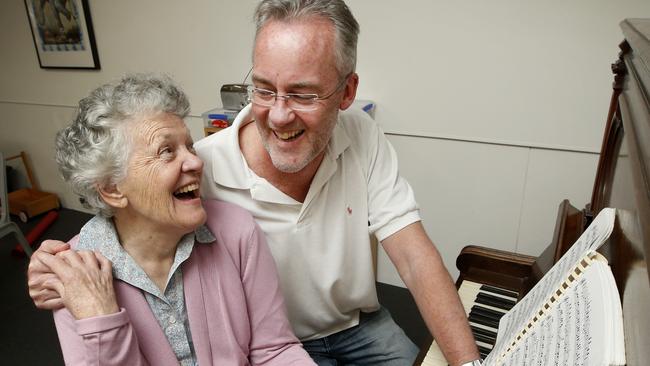Genetics key to recruiting Alzheimer’s patients for drug trial
GENETIC testing will be used to select Victorians with Alzheimer’s disease who have the best chance of relieving their symptoms through a new drug, which has already “woken up” patients from dementia.
VIC News
Don't miss out on the headlines from VIC News. Followed categories will be added to My News.
GENETIC testing will be used to select Victorian Alzheimer’s disease sufferers to take an experimental drug that has already “woken up” some patients with dementia.
The Melbourne-led international trial will give the drug, Anavex 2-73, which continues to stabilise disease progression, to 450 patients who have the disease in a mild to moderate form and who are believed likely to best respond to the treatment.
The cognition of most of the 32 patients who took part in the most recent trial of the drug remained stable, when it had been expected to decline.
MELBOURNE ALZHEIMER’S DRUG TRIAL ACHIEVES AMAZING RESULTS
BRAIN IRON MAY PREDICT ALZHEIMER’S PROGRESSION

But there were dramatic improvements in the mood and memory of a group of six “super responders”, some of whom were able to play the piano or take up golf again, or resume painting.
At their request, the drug trial was extended for a further two years.
The lead researcher, Associate Professor Steve Macfarlane, from HammondCare’s Dementia Centre, said the pharmaceutical company that made Anavex 2-73 had spent the past year working out why some people had a better response to it.
He said genetic analysis predicted that patients who received a higher dose and who had a particular common gene variant would respond well.
“The big change, since a lot of Alzheimer’s trials have failed, is that the industry has started to look at subgroups of people with Alzheimer’s,” Prof Macfarlane said.
“They all have the build-up of the two proteins, amyloid and tau (that are associated with the disease).
“But there is lots of variation in the inflammation, disruption to the waste cells functions and calcium imbalance,” he said.
“Recruiting the right people into the right trial for a particular drug is going to be more and more important, and that’s the step we’re taking with this current trial.”
Associate Prof Macfarlane said it was believed that the drug, which is about to be tested in Parkinson's patients with dementia, worked not only by removing the build-up of abnormal proteins but by addressing other damaging processes in the brain.
“It doesn’t buy into the old argument, that has been around in the field (of research into Alzheimer’s disease) for years, as to whether it’s the amyloid or the tau that’s the cause,” he said.
If the latest drug trial is successful, researchers say it would lead the case for the treatment’s approval by the US drug agency, which could then lead to its being approved for use worldwide.
More details: (02) 8437 7355


